Sadler Scholars
The Hastings Center Sadler Scholars are a select group of doctoral students interested in bioethics research careers. Admission is by application. All events are remote.
For the 2025-26 cohort, we invite applications from doctoral students from any field whose bioethics research focuses on the ethical, legal, and social implications (ELSI) of human genomics. The application deadline is June 13, 2025.
During their cohort year, each Sadler Scholar gives a work-in-progress talk for feedback from Hastings Center staff scholars and editors and the Sadler Scholar community. Workshops on career development, publication, and professional flourishing are also part of the cohort year. All current and former Sadler Scholars have access to one-on-one mentoring sessions with advisors and Hastings Center colleagues and to Hastings Center events such as our invited speaker series.
Stipends for Sadler Scholars are provided by The Hastings Center through the Blair and Georgia Sadler Fund for Socially Just Health Policy. The Sadler Fund also supports expert advisors to this initiative.
Together, Sadler Scholars and advisors are building a community of next-generation scholars, researchers, practitioners, policymakers, and advocates. It is an honor to welcome our new cohort each year.
2024-2025 Sadler Scholars
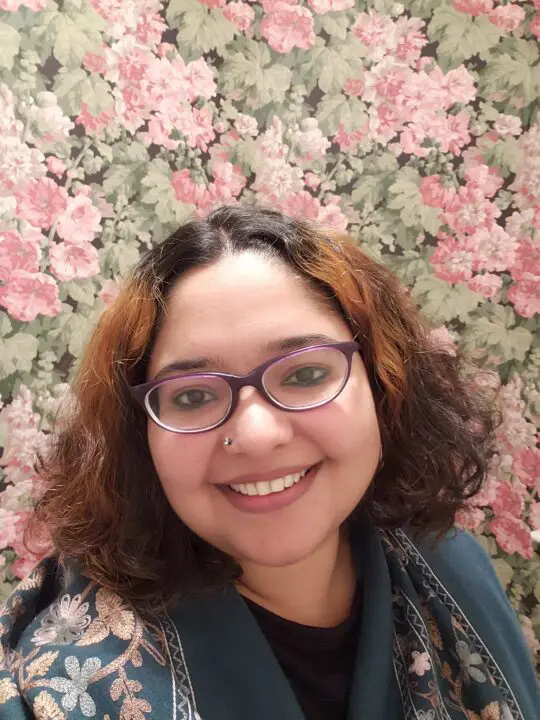
Asmita Aasaavari
Sociology, University of Connecticut
About me: I am pursuing my PhD in Sociology, with graduate certificates in Human Rights and advanced Feminist Studies, at the University of Connecticut, USA. My goal is to become an interdisciplinary scholar, teach at a public university, and advance the well-being of disadvantaged groups through research, activism, and teaching. My work is shaped by a feminist ethic of care and I am passionate about pursuing community-engaged research that is relevant, meaningful, and forged through equitable academic and community partnerships.
My bioethics research interests: My dissertation focuses on caregiving, social inequalities, and cultural and societal values that shape experiences of aging, especially for minority and low-income older adults. My research interviews document the impact of ageism and structural racism, revealing stories of surviving and flourishing despite deprivation, illness, and disability. As a Sadler Scholar, I wish to gain a deeper understanding of how bioethics can be used to examine issues such the consequences of the opioid epidemic for older adults, improving end-of-life care for people with dementia, how perspectives on bioethics, aging and caregiving from the Global South can be integrated into U.S. research and practice, and the influence of neoliberalism on bioethics in the U.S.
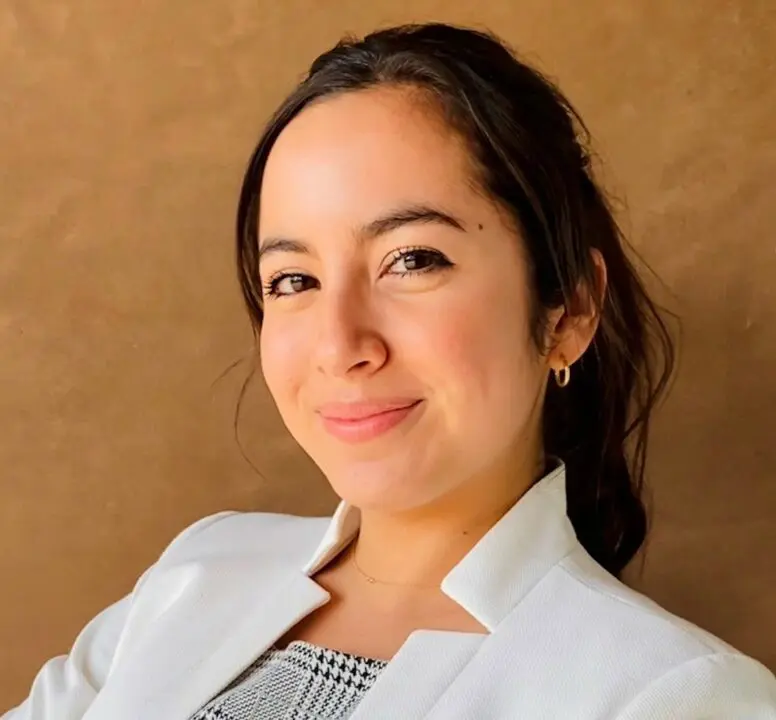
Lucia Canul
Global Health, San Diego State University and UC San Diego
About me: As a doctoral student in Global Health, I aspire to conduct research that promotes health equity for multicultural and underrepresented communities in the United States, Mexico, and Latin America. My clinical experience as a registered dietitian working with migrant populations fuels my passion. As a proud Latina with a deep connection to these communities, I aim to build on my cultural and clinical background through field research, with the goal of securing a tenure-track position and becoming a public health scientist.
My bioethics research interests: My research aims to strengthen migrant and Indigenous/Latinx communities in the U.S, and Mexico through collaborative nutrition initiatives. My research goal is to collaborate with these communities in both countries to co-develop culturally inclusive dietary interventions, guided by community knowledge and traditions. Bioethical research is needed in nutrition interventions, to build trust with communities and to extend epistemology through community-driven nutrition knowledge ownership. As a Sadler Scholar, I hope to delve deeper into this approach with exploratory research on current dietary patterns and traditions as I prepare for my doctoral dissertation.

Kimberlyn (Kim) Ellis
Human Genetics, Vanderbilt University
Inaugural CERA Fellow
About me: I am a computational geneticist pursuing a career as a leading scholar at the intersection of genomics, bioethics, and health policy to promote equitable precision medicine for historically underrepresented populations. My doctoral research addresses the critical integration of how genetic variation, genetic ancestry, and known social and structural risk factors interact and impact biological processes for chronic diseases in underrepresented populations. This research aims to advance precision medicine’s ability to realize its promise of improving health outcomes for the full diversity of the human community.
My bioethics research interests: The long-standing practice of collecting genomic data by race, focusing primarily on individuals of majority European ancestry, has had detrimental impacts on precision medicine through deficient or stalled applications in non-European populations. Ancestry-informed genomic analyses are crucial to equitable precision medicine, yet are severely underutilized. As a future postdoc, I seek to identify and assess the ethical, legal, and social implications (ELSI) of incorporating ancestry-informed genomics into current precision medicine initiatives, which is a natural transition from my doctoral research and one I am deeply passionate and excited about.

Odia Kane
Health Policy and Management, Bloomberg SPH & Berman Institute of Bioethics
About me: I am a first-generation Guinean American and the first person in my family to pursue a PhD. My aspiration is to integrate bioethical theories and frameworks into the development and deployment of digital health technologies that use artificial intelligence (AI) and machine learning (ML). I hope to work for a company that develops digital health technologies, guiding product design and quality assessments, with a long-term goal of working at the federal level on medical AI regulation and technology standards.
My bioethics research interests: My research explores the roles and limits of digital health technologies that use AI/ML to advance health in minoritized groups, with a focus on direct-to-consumer products. Currently, guidance for the development of AI/ML algorithms and for training in using these tools is inconsistent, a situation that may increase risks and harms to already vulnerable communities. I want to understand how to develop a culture of equity among private and public sectors to convene discussions about these challenges, and eventually to produce research and policy suggestions that can strengthen ongoing discourse on the ethics and equity of biotechnology.
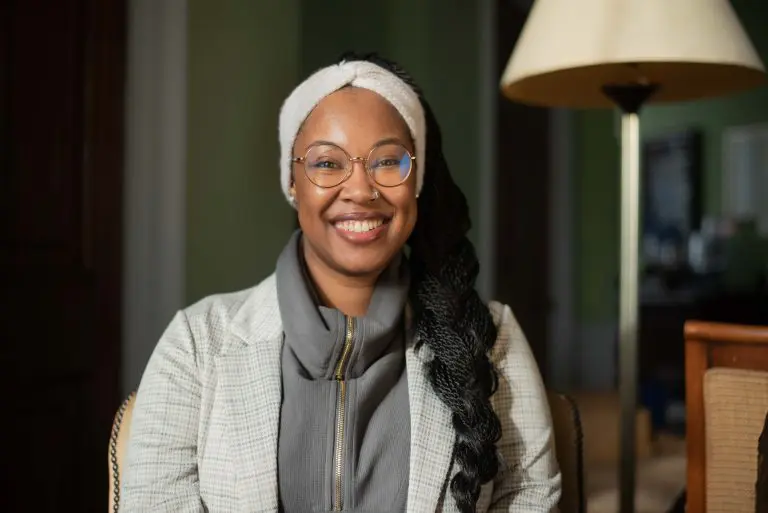
MacKenzie (Kenzie) Isaac
Population Health, Oxford University (UK)
About me: I come from a long lineage of Black female educators, and it has been my greatest joy to settle into an intellectual home of my own in the field of health education. I am interested in how social and commercial determinants co-conspire to shape young people’s mental health help-seeking behaviors, their communities’ responses to this help-seeking, and their consequent mental health outcomes. I am broadly committed to positive youth development in all its forms, and beyond academia, I dream of producing health education content for children’s television and online learning programs.
My bioethics research interests: My doctoral dissertation explores how to ethically negotiate power differentials at both the community and systemic levels to co-design an arts-based health education campaign for and with Black adolescents affected by binge eating disorder. This requires an intimate look into how food, eating, and fat(ness) are moralized in public and private discourse in ways that project blame and shame onto Black bodies. The rift in Black youth’s research representation, shaped by violent legacies of research exploitation and objectification, remains pervasive and deep, especially as it pertains to eating disorders. As a Sadler Scholar, I look forward to accessing uniquely fertile creative ground for imagining, in the company of like-minded scholars at every career stage, how to heal this rift.
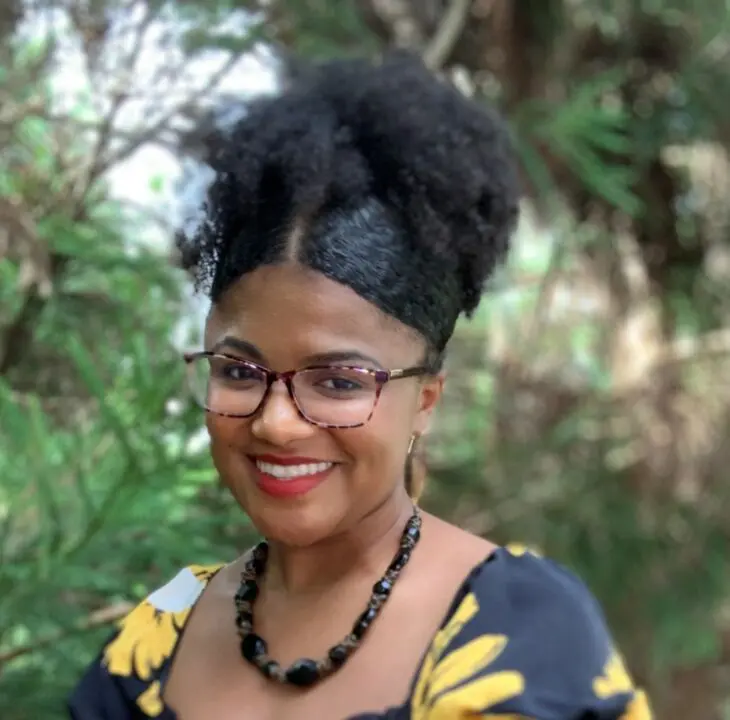
Kailyn Price
Neuroscience, George Washington University
About me: I was born and raised in Charlotte, North Carolina and received my bachelor’s degree in biology from North Carolina A&T State University. I am a neuroscience PhD candidate studying the effects of stress on neurons and synapses in the ventral tegmental area, a brain region that contains a large population of dopamine-releasing neurons. My journey to and through science has been informed by my deep passion for interrogating social and scientific conventions that promote epistemic injustice and health disparities.
My bioethics research interests: I recognized early in my graduate education that evolving values contribute to evolving definitions of psychiatric disorders and concepts of how disorders should be treated. I hope to explore how undisclosed value systems in basic neuroscience research paradigms and research ethics frameworks shape scientific practice and theory, and impact the people conducting the science. I am particularly interested in the ways that categories such as sex, gender, and race are deployed and interpreted in behavioral neuroscience to construct physiological characterizations of human and non-human suffering.
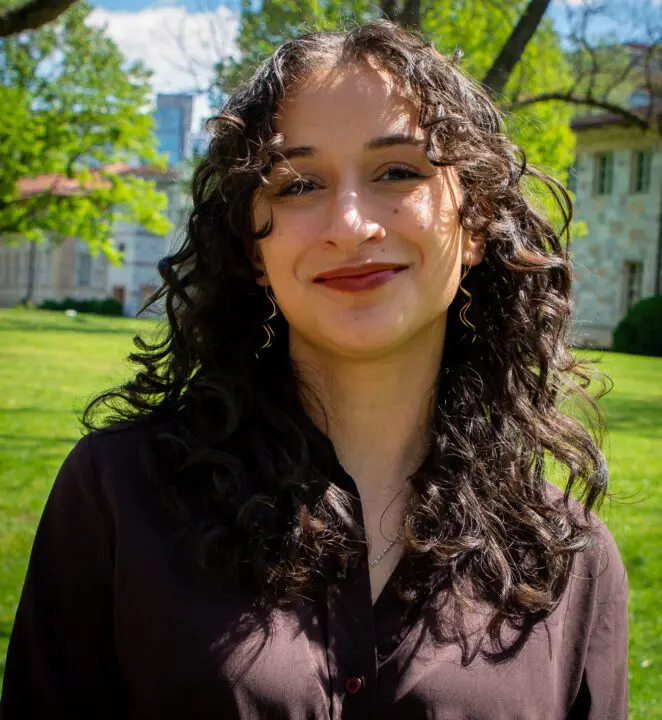
Mariana (Mari) Rocha
Neuroscience, Emory University
About me: I am a first-generation college graduate, born in Mexico and raised in Watsonville, an agricultural town in California whose economy rests upon the labor of immigrant farmworkers like my parents. I have witnessed the detrimental impact of environmental racism, xenophobia, and systemic poverty on individual and community health. I aspire to use my training as a neuroscientist to inform health policies that reduce health inequities in historically oppressed communities.
My bioethics research interests: Due to racism, Black persons are more likely to experience trauma throughout their lifetimes. Black pregnant persons are at increased risk for pregnancy-related metabolic morbidity and mortality, even when controlling for family history and socioeconomic risk factors. My research aims to identify the physiological mechanisms by which traumatic experiences contribute to gestational metabolic disease in Black pregnant persons. Identifying modifiable risk mechanisms for pregnancy-related metabolic morbidity and mortality can inform the development of interventions that reduce Black pregnancy-related health disparities. As a Sadler Scholar, I will incorporate bioethics into my research practices centered on multiply-marginalized communities and will use bioethics as a tool to contribute to the development of policies that reduce racial-ethnic health disparities.

